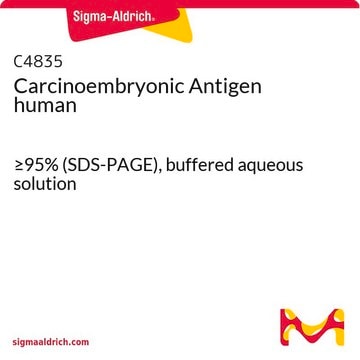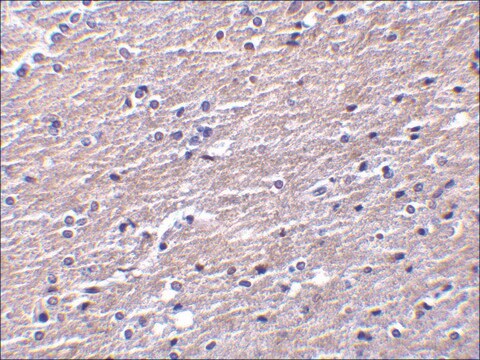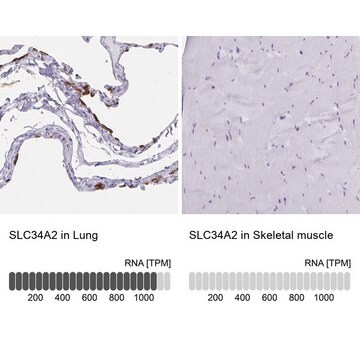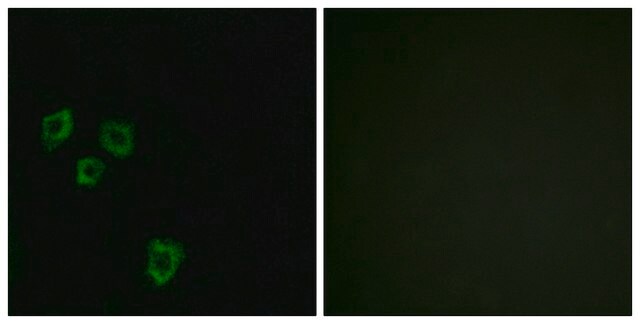This product does not include the antigen. This antibody is reactive against the human protein. Please see the links below to review products that that may serve as positive controls. https://www.sigmaaldrich.com/product/sigma/c4835?icid=sharepdp-clipboard-copy-productdetailpage and
https://www.sigmaaldrich.com/product/mm/219369?icid=sharepdp-clipboard-copy-productdetailpage
C2331
Monoclonal Anti-Carcinoembryonic Antigen antibody produced in mouse
clone C6G9, ascites fluid
Scegli un formato
Scegli un formato
About This Item
Prodotti consigliati
Origine biologica
mouse
Coniugato
unconjugated
Forma dell’anticorpo
ascites fluid
Tipo di anticorpo
primary antibodies
Clone
C6G9, monoclonal
contiene
15 mM sodium azide
Reattività contro le specie
human
tecniche
flow cytometry: suitable
immunohistochemistry (formalin-fixed, paraffin-embedded sections): 1:8,000 using human colon carcinoma tissue
western blot: suitable
Isotipo
IgG1
N° accesso UniProt
Condizioni di spedizione
dry ice
Temperatura di conservazione
−20°C
modifica post-traduzionali bersaglio
unmodified
Informazioni sul gene
human ... CEACAM5(1048)
Categorie correlate
Descrizione generale
Monoclonal Anti-Human Carcinoembryonic Antigen (CEA) reacts specifically with human CEA (CD66e, 180 kDa) from different types of malignant tissues. The antibody detects an epitope which is resistant to 30 minute oxidation by 1% sodium periodate solution in formalin-fixed, paraffin-embedded tissue sections. Enzymatic predigestion with proteolytic enzymes enhances immunohistochemical staining with the antibody.The product reacts with medullary thyroid cancers and also associates with cell surface and cytoplasm of malignant glands in colorectal adenocarcinomas. Additionally, the product reacts weakly with normal colon mucosa and occasionally reacts with bile canalicular and pancreatic acinar cells. However, the antibody does not react with other tested tissue such as term placenta, nor does it bind to non-specific cross-reacting antigen (NCA) in granulocytes.
Specificità
Immunogeno
Applicazioni
Azioni biochim/fisiol
Esclusione di responsabilità
Non trovi il prodotto giusto?
Prova il nostro Motore di ricerca dei prodotti.
Codice della classe di stoccaggio
10 - Combustible liquids
Classe di pericolosità dell'acqua (WGK)
nwg
Punto d’infiammabilità (°F)
Not applicable
Punto d’infiammabilità (°C)
Not applicable
Scegli una delle versioni più recenti:
Certificati d'analisi (COA)
Non trovi la versione di tuo interesse?
Se hai bisogno di una versione specifica, puoi cercare il certificato tramite il numero di lotto.
Possiedi già questo prodotto?
I documenti relativi ai prodotti acquistati recentemente sono disponibili nell’Archivio dei documenti.
I clienti hanno visto anche
-
Is this including antigens too?
1 answer-
Helpful?
-
Active Filters
Il team dei nostri ricercatori vanta grande esperienza in tutte le aree della ricerca quali Life Science, scienza dei materiali, sintesi chimica, cromatografia, discipline analitiche, ecc..
Contatta l'Assistenza Tecnica.










